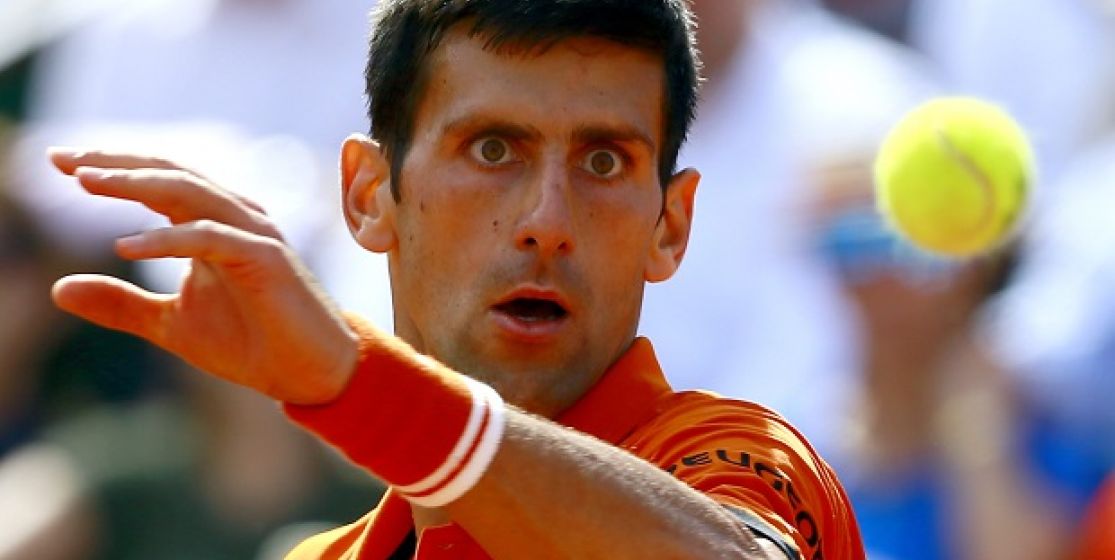Initially, Novak was condemned to remain the eternal third man of the tennis world, behind the Swiss Federer and the Spanish Nadal, a kind of third wheel of his discipline. A fate that Novak obviously laid to rest.
July 2015. Final of Wimbledon. Roger Federer may well have played his best tennis for a long time - some even considered his semi-final against Andy Murray as one of his best matches ever, worthy of Roger 07 – but Djokovic was sickening. And his tennis even more. Despite a very close early game, the outcome was inevitable, defeat for Roger. Balkanic power, perfect shots, impossible angles: the game of Djokovic is a savagery that goes beyond genius. All his shots shall be played to win. Even Roger the tamer cannot do anything. The more he wants to control the beast, the more the shots of the latter turn against him. Until the final bite. 7-6, 6-7, 6-4, 6-3. Besides, this is indeed one of the only things that Roger wasn't able to control, he who controls everything, whether it is the tempo of a game, the story-telling of his career, or even time that goes by, all in patience and mechanics, just like a Swiss watch.
A gentle eccentric, not to say mad
Djokovic is neither Swiss, nor watchmaker, and certainly not in control. Instead, the Serb gives the impression of still being in the process of taming his own game. As if he was just capturing flashes that escape him, while he’s still the author. A bit like the musician who tries to grasp the little music that he's been hearing in his head forever. Djokovic doesn't dictate his game, not to him nor to anybody, since he seems to endure it, temper it and even dread it. Result, Djokovic is primarily built around himself and his game is in his image, gently eccentric, not to say crazy. And if he doesn't give an impression of control like Federer does, let alone that refusal of defeat and mental strength of Nadal (mental he still has today, while his game seems more faded than ever, and that suggests to all the tennis planet that a return to the top is still possible for the Spaniard), Djokovic surpassed them, like a mix of them two, keeping the best of both world. So that today we can put together this theorem: Nadal plays not to lose, Federer plays for the beautiful winning points and Djokovic, the little jerk, to make his opponent lose.
Off balance and aikido
Because at the end of the day, Djokovic is the same player than at his debut. Baroque, unpredictable, powerful, spontaneous and confusing. And where a Federer had to calm down and temper his enthusiasm - in order to break less racquets and win more games - Djoko chose to embrace his condition and especially not to put a little water in his game. On the contrary. And his game is the one of an offensive blocker pushed to its climax. First, an exceptional physique, all in endurance, flexibility and speed, direction changes and exponential coverage of the court. Then, a pace that makes it difficult to sustain a rally for his opponent, often disorientated by such a discharge of energy. Of course, add to that a flawless technique, a higher sense of anticipation, and almost supernatural reflexes. It’s not surprising that the service backhand is his best shot, the most demoralizing for his opponent. Everything in his game is turned to catch his opponent off balance. Hell for the enemy, especially as the more the latter attacks Djoko, the more it is likely to turn against him, literally and figuratively. So this notion of offensive blocker at this level becomes almost aikido. Be quiet, it is better for you.
Roger Wimbledon and Rafa-Garros
It is by dint of seeing his game turning against him that Djoko understood how to perfectly return the ball to his opponent, whoever it is. The Serb is still unpredictable but no longer has any flaw in his spectrum, except perhaps the volley that he hardly uses, even on the green grass of Wimbledon. Moreover, this latest title won in London despite the huge disappointment experienced at Roland Garros, proves the newfound mental strength of Djokovic. Finally, when you look at his tournament, the Serb - who had played no match on the surface before the first round - wasn't really incredible, and in the final, he "only" had to tighten the bolts to leave no chance to the master of the premises. So this year, Djokovic became the first man to beat Federer on his grass at Wimbledon, and Nadal on his clay at Roland Garros; that means one of a kind for a tennis player, along with a real sense of history. Sometimes the third wheel actually become the first...






